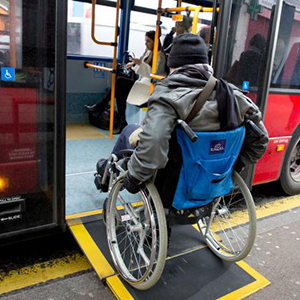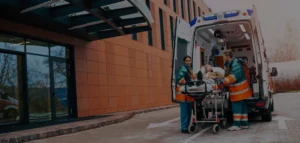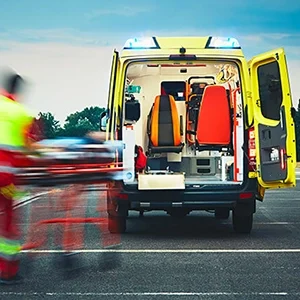Getting to and from chemotherapy appointments is crucial for cancer patients, but it can be challenging. Many factors contribute to this challenge, such as the cost of transportation, lack of public transportation options, and limited social or family support. Cancer treatment often requires frequent visits over several weeks or months, which can add up in terms of cost and time.
For many patients, driving themselves may not be an option due to the side effects of chemotherapy, such as fatigue, nausea, or weakness. Public transportation may not always be convenient or accessible, especially for those living in rural areas.
Additionally, relying on family or friends for rides can be burdensome, as they may have work or other commitments. In this blog, we will help you find the right chemo transport for your sessions.
How to Find a Reliable Chemo Transport for Your Sessions
Here some ways of doing it;
Look Online for Chemo Transport Services
Searching online can be a convenient way to find chemo transport services tailored to cancer patients. Websites and directories dedicated to medical transportation often list companies specializing in chemo transport.
These services typically offer comfortable and safe transportation to and from treatment centers. When looking online, be sure to check the company’s website for details on their services, such as the types of vehicles they use, their availability, and any customer reviews or testimonials.
Ask Friends and Family for Referrals
Seeking recommendations from friends and family members who have used chemo transport services can be invaluable. They can provide firsthand insights into the reliability, comfort, and overall experience with different transport providers. By asking for referrals, you may discover local companies that are well-regarded within your community but may not be widely known.
Check Online Reviews
Online reviews can provide valuable feedback on the quality of service offered by chemo transport companies. Look for reviews on websites like Google, Yelp, or specialized medical transportation directories. Pay attention to comments about punctuality, driver professionalism, vehicle cleanliness, and overall customer satisfaction. While reviews can be helpful, it’s important to consider the overall consensus and not just individual opinions.
Contact Cancer Support Organizations
Cancer support organizations can be a valuable resource for finding chemo transport services. They may have partnerships with transportation companies or be able to provide information on local services. Additionally, these organizations may offer financial assistance or other resources to help offset the cost of transportation for cancer patients. Contacting a cancer support organization can also connect you with a supportive community of individuals who understand the challenges of cancer treatment.
Check with Your Insurance Provider
Many insurance providers offer coverage or assistance with transportation for medical appointments, including chemo treatments. Contact your insurance company to inquire about your coverage options and any requirements for using their transportation benefits. They may be able to provide a list of approved transport providers or programs that can help you access affordable chemo transport services.
Local Community Centers and Religious Organizations
Community centers and religious organizations often provide transportation services for medical appointments to members of their community. These services may be free or offered at a reduced cost. Contact your local community center or religious organization to inquire about their transportation services and eligibility requirements. They may be able to connect you with a volunteer driver or a transportation program that can assist you with getting to your chemo appointments.
Public Transportation and Paratransit Services
Public transportation options, such as buses and trains, may offer accessible routes to your chemo treatment center. Some cities also offer paratransit services for individuals with disabilities or medical needs. These services typically require advance booking and may have eligibility criteria, so be sure to check with your local public transportation authority for more information.
Check with Your Treatment Center
Your chemo treatment center may have resources or partnerships with transportation services for patients. Social workers or patient navigators at the treatment center can provide information on available transportation options and help you make arrangements. They may also be able to assist with scheduling and coordinating transportation to ensure you arrive safely and on time for your appointments.
Why should Cancer Patients Avoid Driving to and From their Sessions
Here are some reasons cancer patients must avpid driving to and from their sessions;
Safety Concerns
Cancer treatments can cause side effects such as fatigue, dizziness, and weakness, which can impair a person’s ability to drive safely. Driving while experiencing these side effects can increase the risk of accidents and jeopardize the safety of the patient and others on the road.
Risk of Infection
Cancer treatments, such as chemotherapy and radiation therapy, can weaken the immune system, making patients more susceptible to infections. Public transportation, with its close quarters and exposure to a variety of people, can increase the risk of infection for cancer patients. Avoiding public transportation and driving can help reduce this risk.
Stress and Anxiety
Cancer treatments can be physically and emotionally taxing. Driving in traffic or navigating unfamiliar routes to and from treatment sessions can add to the stress and anxiety that cancer patients may already be experiencing. Avoiding driving allows patients to focus on their treatment and well-being without the added stress of driving.
Physical Limitations
Cancer treatments and their side effects can cause physical limitations, such as reduced mobility or discomfort. These limitations can make it challenging for patients to drive safely and comfortably. Using alternative transportation methods can help alleviate these challenges and ensure patients arrive at their appointments safely and in a timely manner.
Cancer treatment can be exhausting, and patients often need time to rest and recover after their sessions. Driving can be physically demanding and may detract from the rest and recovery that patients need. Avoiding driving allows patients to prioritize their health and well-being during this critical time.





